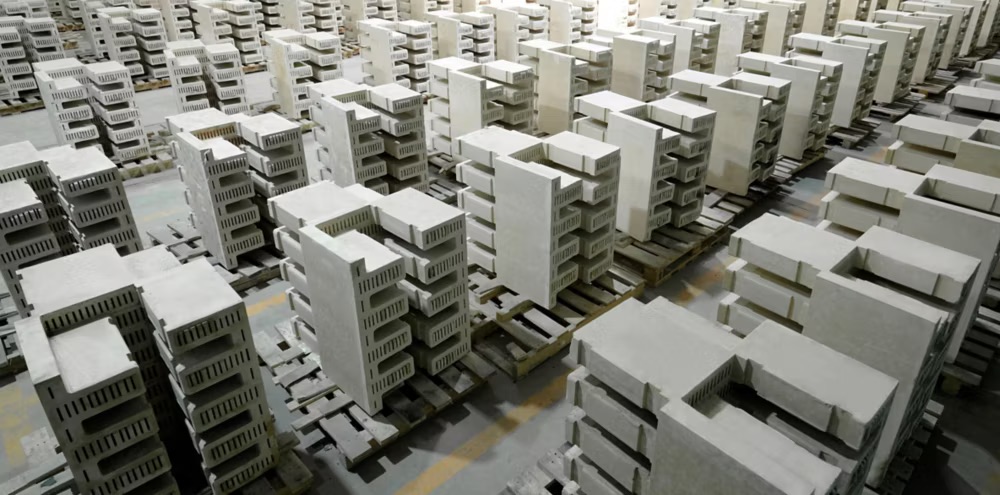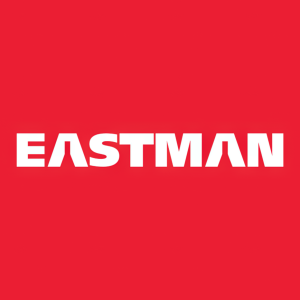Combining Molecular Recycling With Groundbreaking Clean Energy
Rhea-AI Summary
Eastman has announced the development of a new molecular recycling facility in Longview, Texas, powered by thermal battery technology. The project is supported by up to $375 million from the U.S. Department of Energy's Office of Clean Energy Demonstrations. The facility will process around 110,000 metric tons of hard-to-recycle plastic waste, contributing to Eastman's goal of recycling 250 million pounds of plastic annually by 2025 and doubling that by 2030. The use of thermal batteries, which store heat generated from renewable energy, will significantly reduce greenhouse gas emissions. The Longview project is a part of Eastman's $2 billion investment in molecular recycling and aims for carbon neutrality by 2050. The facility will also create significant employment opportunities, with 1,000 temporary construction jobs and 200 full-time positions.
Positive
- Eastman will receive up to $375 million from the U.S. Department of Energy for the Longview project.
- The Longview facility will process 110,000 metric tons of hard-to-recycle plastic waste annually.
- Eastman aims to recycle 250 million pounds of plastic annually by 2025, doubling by 2030.
- Thermal battery technology will reduce greenhouse gas emissions by up to 90%.
- The project will create 1,000 temporary and 200 full-time jobs.
Negative
- The Longview facility's completion is projected for 2027, potentially delaying immediate financial benefits.
News Market Reaction
On the day this news was published, EMN declined 2.86%, reflecting a moderate negative market reaction.
Data tracked by StockTitan Argus on the day of publication.
NORTHAMPTON, MA / ACCESSWIRE / July 1, 2024 / Eastman:
Eastman's molecular recycling facility in Texas will use cutting-edge technology in thermal batteries.
Already a leader in building a circular economy, Eastman took another step forward when it announced a second molecular recycling facility will be built in Longview, Texas. The project will now put Eastman out in front in the search for alternative, clean energy sources.
Powered by the selection to negotiate an award of up to
"This can be a game changer for addressing both the plastic waste crisis and the climate crisis at the same time," said Sandeep Bangaru, vice president of Eastman's circular platform. "We're taking a leadership role in building the largest thermal battery project to date in our industry."
Longview facility key to sustainability goals
The U.S. Department of Energy (DOE) funding comes from the Bipartisan Infrastructure Law and Inflation Reduction Act as part of the Industrial Demonstrations Program. The Longview project is part of Eastman's commitment to invest more than
The Longview facility will have the capacity to process approximately 110,000 metric tons of hard-to-recycle plastic waste, and both the Kingsport and Longview plants will put Eastman on the path to achieving ambitious goals of recycling 250 million pounds of plastic annually by 2025 and double that volume by 2030.
The company also targets being carbon neutral by 2050. Eastman's climate strategy includes increasing renewable energy and adopting alternative technologies, which will be front and center at the Longview molecular recycling facility.
Leadership on climate
In addition to familiar forms of renewables, including on-site solar, Eastman will deploy a recent innovation that produces zero-carbon heat: thermal batteries. This technology could be a breakthrough for powering industry with cleaner energy.
Eastman has been collaborating with Rondo Energy to deploy thermal batteries for the project. Rondo Heat Batteries (RHBs) are essentially modular units containing thousands of tons of brick and coils of metal, much like those in the toaster on your kitchen counter. RHBs transform intermittent renewable power - in Eastman's case, much of it from new, on-site solar - into heat in excess of 1,000°C. The brick batteries can store massive amounts of heat for up to 24 hours with very little loss.
By incorporating thermal batteries fed by renewable energy, Eastman will be able to recycle hard-to-recycle polyester waste and produce new, recycled materials with up to
John O'Donnell, CEO of Rondo, said the project demonstrates how collaboration can deliver a multiplier effect with cutting-edge technologies.
"Our work with Eastman illustrates how innovation and collaboration are essential to address great world challenges," O'Donnell said. "Years of innovation and development by Eastman in molecular recycling combined with Rondo's expertise in thermal batteries have delivered a moment where these technologies can be deployed together at large scale."
Thermal batteries could be a ‘game changer'
Neil Brown, an Eastman engineer who is a leader in assessing renewable energy, said thermal batteries could be a critical innovation for decarbonizing industry.
"This can be a true game changer for providing low- or zero-carbon power for industrial processes," Brown said. "Anywhere there are great needs for process heat - and Eastman uses a lot of heat to power our processes - thermal batteries can be a solution because you're able to store heat for so long with so little loss. Another plus of building this new facility at an existing site is that if we run into challenges as we're integrating the new thermal technology, we have backup steam and power systems in place to allow continued operations."
In addition to the clean energy and circular economy advantages, there will be tangible benefits for the community. Eastman has committed a
*The U.S. Department of Energy's Office of Clean Energy Demonstrations (OCED) was established to accelerate clean energy technologies and fill a critical innovation gap on the path to achieving our nation's climate goals of net zero emissions by 2050. OCED's mission is to deliver clean energy demonstration projects at scale in partnership with the private sector to accelerate deployment, market adoption, and the equitable transition to a decarbonized energy system. Visit energy.gov/oced to learn more.

View additional multimedia and more ESG storytelling from Eastman on 3blmedia.com.
Contact Info:
Spokesperson: Eastman
Website: https://www.3blmedia.com/profiles/eastman
Email: info@3blmedia.com
SOURCE: Eastman
View the original press release on accesswire.com







